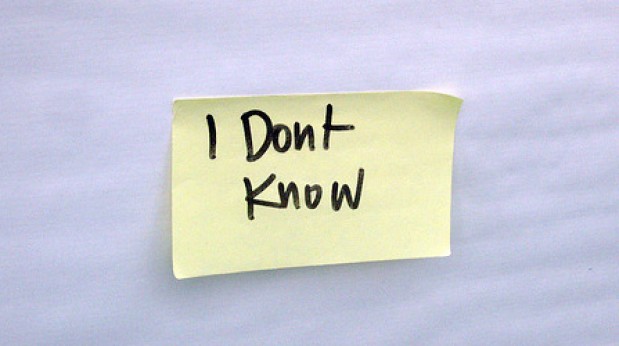Eons ago in my initial career years, I remember once being asked a question during a job interview that I had not really contemplated nor prepared for. My mind went blank. Then my mind started frenziedly scanning all my experiences wherein I could dip in and respond. I failed. Miserably. So, I just stated the truth – I don’t know the answer to this one.
Needless to say, I didn’t get that job. I kept wondering whether it was my ‘I don’t know’ stance that had made me miss out on the opportunity. Of course, I shall never know.
Paradoxically, when it comes to a personal situation wherein, I am stuck and unable to figure my way out, saying ‘I don’t know’ is relatively easier. In our personal relationships we overcome the fear of being rejected by our loved ones, family and friends. Hence, it becomes easy to open up.
This ability to be ‘vulnerable’ and show your authentic true self is today a much cherished and sought-after leadership trait.
In 1984, at the age of 34, Eileen Fisher made a decision to start a clothing business. Her vision was very simple – to design simple and elegant clothing for women. However, she didn’t know how to sew, nor did she know anything about business.
What she did have with her was her ‘I don’t know’ attitude. Today, Eileen Fisher, Inc. employs around 1,000 people, has over 65 retail stores, and generates over $300 million dollars in revenue. When asked what the secret to her success was, this American fashion designer and entrepreneur said: –
“I’ve always been a ‘don’t knower’. “I’ve always been very comfortable saying, ‘I don’t know.’ As a result, there’s a sense of openness. When you don’t know and you’re really listening intently, people want to help you. They want to share.”
Our fears inhibit us
People hesitate to acknowledge their lack of knowledge in some subjects or on topics that are critical to their function and role due to multiple fears.
- Fear of being judged
No one likes to make mistakes. But many mistakes are not deliberate – they are part of the learning curve and are universal. Fear of being judged and ridiculed based on our mistakes inhibits people from seeking help.
- Fear of failure
This fear can cause mind paralysis – self doubt and low levels of confidence can stop people from reaching out for the right kind of support.
- Fear of not being seen as a leader
Leaders are supposed to be in command, authoritative and subject matter experts. Any deviation from that leads to the fear of being viewed as someone with less accountability and ownership.
Benefits of creating the culture of ‘I don’t know’
Leaders can lead by creating a culture of ‘I don’t know’ wherein they are open about their mistakes and also hold themself accountable for what follows.
This creates an environment wherein employees do not hesitate to open up and in fact, strengthens employee engagement. An open culture wherein people are able to share their diverse views can empower employees to take initiatives and find innovative solutions. This also leads to enhanced levels of trust between employees and leaders.
By sharing and being vulnerable, people participate and get to learn new things. New learnings lead to enriched experiences and better opportunities in the future. As they say, failure is a stepping stone to success.
Employees do come to know when things are not going the right way. It would be unwise to pretend that everything is well with the organisation when clearly there are rumblings that is heard by others. By stepping up and acknowledging gaps and mistakes organisations and leaders can create an inclusive culture that promotes a safe environment for authenticity, vulnerability and sharing.
The views and opinions published here belong to the author and do not necessarily reflect the views and opinions of the publisher.



Be the first to comment on "‘I don’t know’"